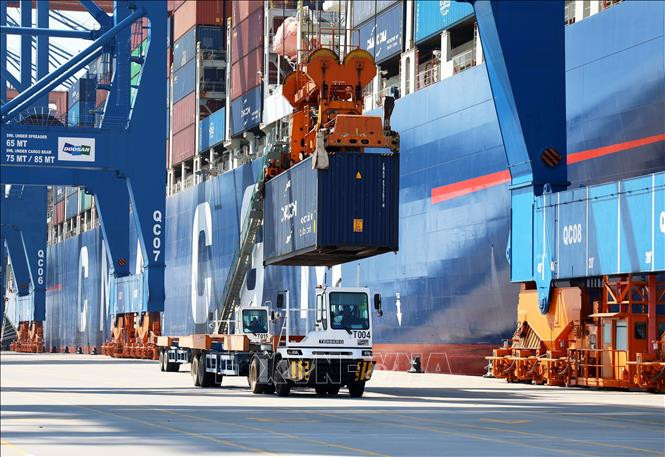Vietnam's economic growth is expected to accelerate in 2024, driven by a recovery in manufacturing exports, tourism, consumption and investment, according to a new World Bank (WB) report released on August 26.

Accordingly, Vietnam's economy is forecast to grow 6.1% in 2024 and 6.5% in 2025 and 2026, higher than the 5% in 2023, according to the Taking Stock report.
The report shows the resilience of the Vietnamese economy amid growing global challenges. Titled “Reaching new heights in the capital market”, the report notes that the economy has yet to return to its pre-pandemic growth path. Therefore, it is necessary to boost public investment to both stimulate short-term demand and help address infrastructure shortages – especially in the energy, transport and logistics sectors – which are bottlenecks to growth. In addition, the report also suggests that banks’ asset quality needs to be closely monitored due to rising bad debts.
"In the first half of this year, Vietnam's economy benefited from the recovery in export demand. To maintain growth momentum from now until the end of the year and in the coming years, authorities need to continue institutional reforms, boost public investment, and manage and monitor risks in financial markets," said Sebastian Eckardt, Director of the Macroeconomics, Trade and Investment Department for the East Asia and Pacific region of the World Bank.
Speaking at the press conference, Ms. Dorsati Madani, Senior Economist of the World Bank in Vietnam, said that the growth forecast of 6.1% is very positive, but the Vietnamese economy has not yet returned to its full potential. Ms. Madani said that after a strong recovery in the first half of 2024, the growth rate of the Vietnamese economy will slow down in the coming time, affected by the slowing growth trend of major economies in the world such as the US, Europe and China.
The World Bank representative recommended that Vietnam should accelerate the disbursement of public investment to continue to boost the economy. In addition, it is necessary to encourage banks to improve their capital adequacy ratios, while improving infrastructure construction to attract private investment. Diversifying trade to further enhance integration will also be a factor to help improve the resilience of the Vietnamese economy.